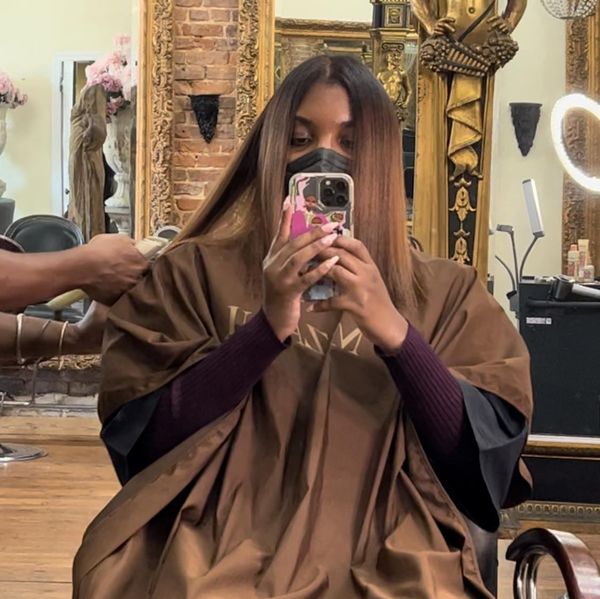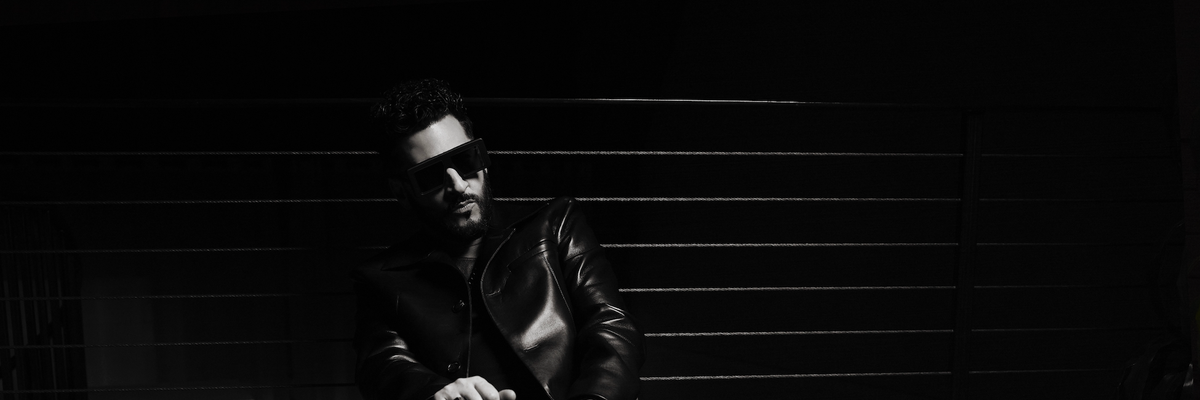
Eczema is something that has come to fascinate me over the past few years. The reason why is because, although I know some people who have eczema (some worse than others), it wasn't until about six or seven years ago that I noticed a patch behind each ear myself. As someone who has a fungal sensitivity and really no other health issues, I couldn't figure out what the heck was going on.
When I discovered the fact that eczema (also known as atopic dermatitis) was a skin inflammation issue, that there are basically seven different types of eczema (you can read more about that here) and that while it's more probable in individuals who have family members that have it, the reality is there are triggers that can cause almost anyone to have a flare-up, I decided to share what some of those triggers are with you.
Because anyone who's had the constant itchiness and/or scaly skin and/or weeping blisters knows that if there is anything that can be done to keep eczema at bay, it's best that you do it. Anyway, here are seven common things that can cause eczema to show all the way out.
1. Diet

Getty Images
Personally, when it comes to what causes the area behind my ears to get irritated by eczema, I'm willing to bet that it's my diet more than anything. While I strive to eat pretty responsibly most of the time, right around my period, I tend to be on some other ish.
For instance, remember how I said that the root issue of eczema is skin inflammation? Well, wouldn't it make total sense that foods that cause inflammation could cause eczema to happen from time to time? Some of those foods include dairy (which is my thing when I decide to go all in on ice cream and pizza during PMS), sugar, gluten, soy, tomatoes, citrus fruit, eggs and even spices like cinnamon and vanilla.
Does this mean that you have to give all of this up? Lawd, life would suck if you did, right? It's more like, what you might want to do is either go by a process of elimination to see which foods personally affect you or opt to not eat several of those foods at the same time. Besides, it's not like a lot of dairy, sugar or soy are the best things for you, anyway. A bout of eczema may be just what you need to remind you of that very fact.
2. Dry Skin
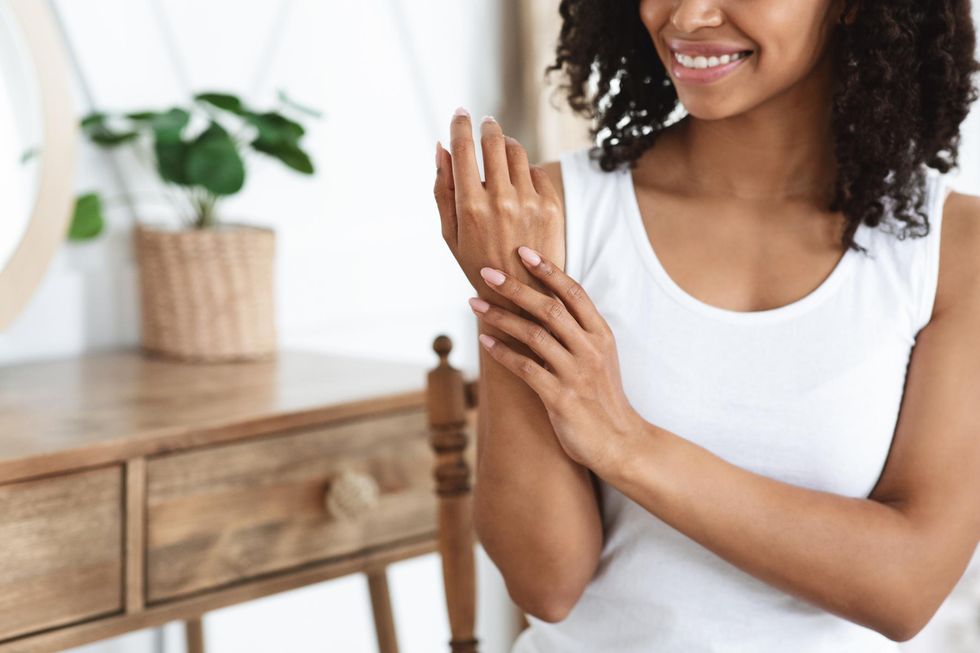
Prostock-Studio/Getty Images
Tell me something. How good are you at keeping your skin nice and moisturized? If you've always been curious about how you can know for sure that your skin is well-hydrated, make sure that you "seal" it by moisturizing it while it is still damp. Also, it's important to drink lots of water throughout the day and to pay close attention to if your skin feels tight or if your make-up looks "cake-y" when you put it on (by the way, signs that you're over-moisturizing is your pores are clogged, your skin keeps breaking out and/or you're noticing that your skin isn't absorbing whatever you put on it).
When this doesn't happen, it can cause your skin to become super dry, flaky and scaly. And that can definitely cause eczema to rear its ugly head. So, definitely make moisturization a priority. Your skin will always thank you for it if you do.
3. Stress

Shutterstock
While I'm not personally an avid Tyler Perry movie watcher, there is a line from his film Temptation that I adore and use semi-often. It's a scene from when Vanessa Williams's character said, "Good luck with your struggle." Here's the context. A bad habit that I used to have with my clients is I would sometimes find myself far more invested in them getting better than they were which resulted in my becoming more stressed out than I ever needed to be. And looka here — as you get older (and hopefully wiser), you learn that anything/anyone that comes with a lot of stress, it just isn't worth the time or even the paycheck.
One of the reasons why is because long-term stress is tied to health-related issues like obesity, diabetes, asthma, headaches, depression and even shortened longevity. Girl, no person, place, thing or idea is worth all of that drama.
And just what does all of this have to do with eczema? While many health professionals do not believe that stress actually causes eczema to occur, when we're stressed out and the cortisol (our natural stress-related hormone) increases, that can result in bodily inflammation which can ultimately lead to eczema symptoms. That's why, I don't care if it's meditation, exercise, sex, sleep or releasing some people, watch your stress levels. If you don't, your skin could alert you that things have gone way too far.
4. Allergens
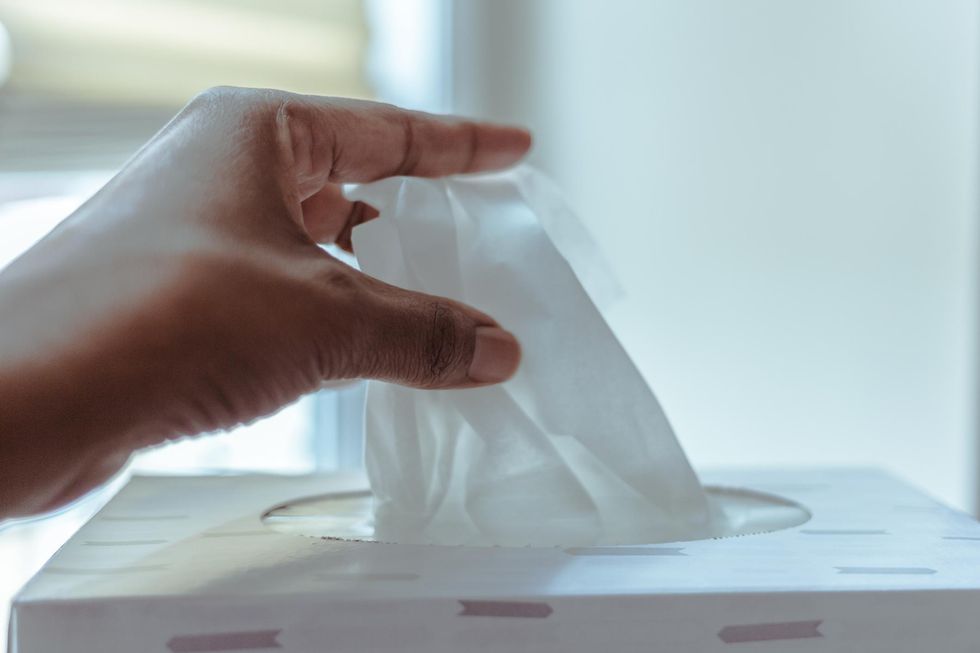
Grace Cary/Getty Images
Out of all of what I've already shared, this probably makes a lot of sense when you think about the fact that airborne allergens like mold, dander and pollen have the ability to weaken your immune system over time and potentially irritate your skin which could also cause an eczema outbreak. So, what should you do in this instance? Vacuum regularly. Change your sheets no less than once a week. And speak with your physician about whether or not you should take an antihistamine. The less your body reacts to allergens, the greater your chances will be of avoiding eczema on your skin.
5. Household Chemicals
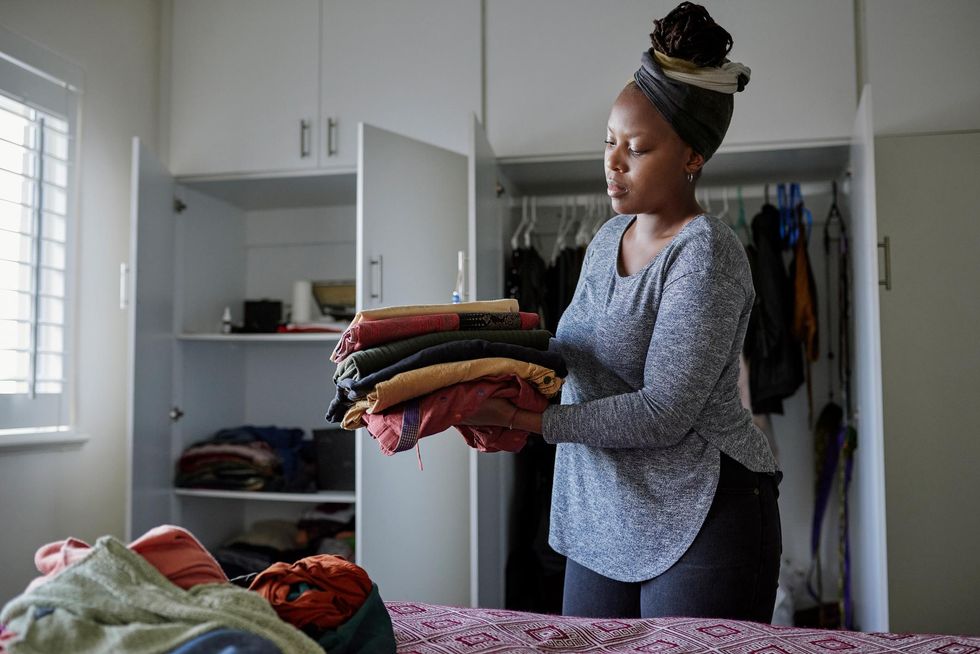
mapodile/Getty Images
Remember how I said in the intro that there are different types of eczema? Well, there's one in particular that is also known as contact dermatitis. It's when your skin is triggered by things like soaps, cleaning products and clothing dyes. Not only that but the chemicals in hair dyes and cosmetics, along with the perfumes that may be in all of these things, can also cause an eczema flare-up to occur. While you will need to see your doctor in order to confirm that this is the cause of the itching, burning, tenderness, inflammation or scaling that you might see, chances are that if you go with products that are as natural as possible and fragrance-free, that could help relieve eczema-related symptoms. Significantly so.
6. Hormonal Shifts
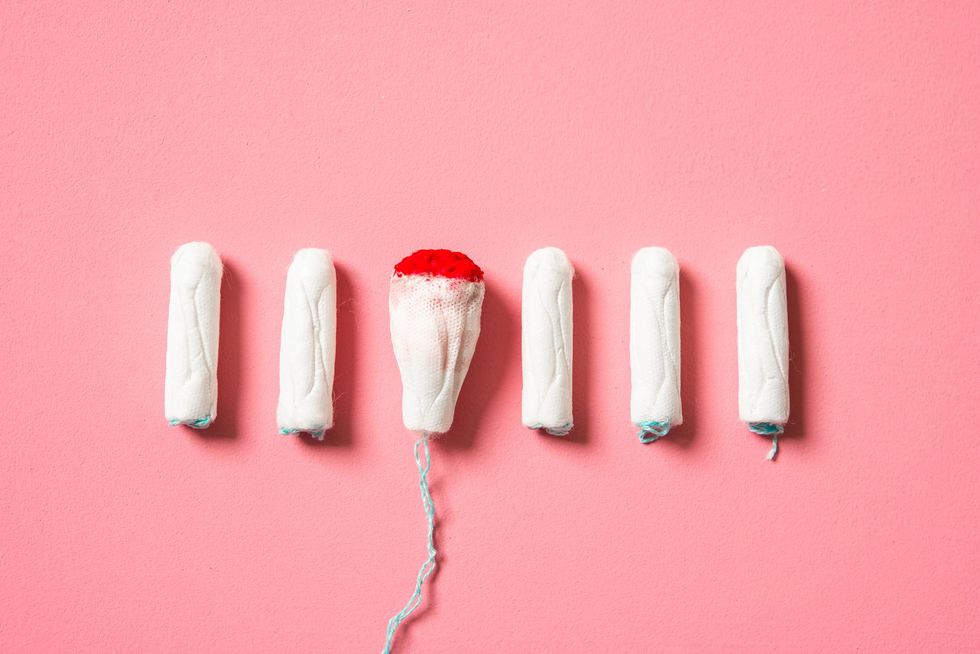
Georgii Boronin/Getty Images
Here's a heads up, especially if you are perimenopausal or are currently going through menopause. Something that happens during this particular season of life is our estrogen levels start to significantly decrease. Once this happens, it can be more challenging for our bodies to maintain enough fluid to keep our skin moisturized. And, as I already shared, when our skin is dry, eczema can oftentimes become triggered as a direct result.
Typically, perimenopause starts to occur between 7-10 years before the time when you go without a period for a year (which is official menopause). So, if you're noticing a lot of fatigue, hot flashes, a lower libido, vaginal dryness, irregular periods or incontinence, please see your doctor as soon as possible. They can discuss what you can do to get your estrogen levels up, so that hopefully, eczema won't be as much of an issue.
By the way, it's not uncommon for estrogen levels to teeter right before your period too. If that happens, some foods that are natural sources of estrogen include dried fruit, garlic, peaches, berries, wheat bran, flaxseeds and alfalfa sprouts.
7. Extreme Temperatures
 Getty Images
Getty ImagesOne more. If it seems like things are all good during the spring and fall, only for all hell to break loose when summer and winter roll around, that probably isn't a random occurrence. The truth of the matter is that summer can cause excess sweating and the salt that comes from it can cause itching and lead to the spread of eczema. On the flip side, the cold winter air can cause your skin to become extra dry and we already discussed what can come from that. So, in the summer, stay hydrated and try not to spend hours in the heat before cooling down. In the winter, don't forget to moisturize and consider sleeping with a humidifier, so that extra moisture can travel through the air while you sleep and protect your skin. Just one more way to keep eczema triggers from totally bothering you.
Join our xoTribe, an exclusive community dedicated to YOU and your stories and all things xoNecole. Be a part of a growing community of women from all over the world who come together to uplift, inspire, and inform each other on all things related to the glow up.
Featured image by Prostock-Studio/Getty Images
- 8 Signs You've Got Candida Overgrowth (& What To Do About It) ›
- 4 Ways To Address Eczema & Allergies Naturally - xoNecole ... ›
- 7 Reasons To Use Colloidal Oatmeal On The Skin - xoNecole ... ›
Exclusive: Viral It Girl Kayla Nicole Is Reclaiming The Mic—And The Narrative
It’s nice to have a podcast when you’re constantly trending online. One week after setting timelines ablaze on Halloween, Kayla Nicole released an episode of her Dear Media pop culture podcast, The Pre-Game, where she took listeners behind the scenes of her viral costume.
The 34-year-old had been torn between dressing up as Beyoncé or Toni Braxton, she says in the episode. She couldn’t decide which version of Bey she’d be, though. Two days before the holiday, she locked in her choice, filming a short recreation of Braxton’s “He Wasn’t Man Enough for Me” music video that has since garnered nearly 6.5M views on TikTok.
Kayla Nicole says she wore a dress that was once worn by Braxton herself for the Halloween costume. “It’s not a secret Toni is more on the petite side. I’m obsessed with all 5’2” of her,” she tells xoNecole via email. “But I’m 5’10'' and not missing any meals, honey, so to my surprise, when I got the dress and it actually fit, I knew it was destiny.”
The episode was the perfect way for the multihyphenate to take control of her own narrative. By addressing the viral moment on her own platform, she was able to stir the conversation and keep the focus on her adoration for Braxton, an artist she says she grew up listening to and who still makes her most-played playlist every year. Elsewhere, she likely would’ve received questions about whether or not the costume was a subliminal aimed at her ex-boyfriend and his pop star fiancée. “I think that people will try to project their own narratives, right?” she said, hinting at this in the episode. “But, for me personally – I think it’s very important to say this in this moment – I’m not in the business of tearing other women down. I’m in the business of celebrating them.”
Kayla Nicole is among xoNecole’s It Girl 100 Class of 2025, powered by SheaMoisture, recognized in the Viral Voices category for her work in media and the trends she sets on our timelines, all while prioritizing her own mental and physical health. As she puts it: “Yes, I’m curating conversations on my podcast The Pre-Game, and cultivating community with my wellness brand Tribe Therepē.”
Despite being the frequent topic of conversation online, Kayla Nicole says she’s learning to take advantage of her growing social media platform without becoming consumed by it. “I refuse to let the internet consume me. It’s supposed to be a resource and tool for connection, so if it becomes anything beyond that I will log out,” she says.
On The Pre-Game, which launched earlier this year, she has positioned herself as listeners “homegirl.” “There’s definitely a delicate dance between being genuine and oversharing, and I’ve had to learn that the hard way. Now I share from a place of reflection, not reaction,” she says. “If it can help someone feel seen or less alone, I’ll talk about it within reason. But I’ve certainly learned to protect parts of my life that I cherish most. I share what serves connection but doesn’t cost me peace.
"I refuse to let the internet consume me. It’s supposed to be a resource and tool for connection, so if it becomes anything beyond that I will log out."

Credit: Malcolm Roberson
Throughout each episode, she sips a cocktail and addresses trending topics (even when they involve herself). It’s a platform the Pepperdine University alumnus has been preparing to have since she graduated with a degree in broadcast journalism, with a concentration in political science.
“I just knew I was going to end up on a local news network at the head anchor table, breaking high speed chases, and tossing it to the weather girl,” she says. Instead, she ended up working as an assistant at TMZ before covering sports as a freelance reporter. (She’s said she didn’t work for ESPN, despite previous reports saying otherwise.) The Pre-Game combines her love for pop culture and sports in a way that once felt inaccessible to her in traditional media.
She’s not just a podcaster, though. When she’s not behind the mic, taking acting classes or making her New York Fashion Week debut, Kayla Nicole is also busy elevating her wellness brand Tribe Therepē, where she shares her workouts and the workout equipment that helps her look chic while staying fit. She says the brand will add apparel to its line up in early 2026.
“Tribe Therepē has evolved into exactly what I have always envisioned. A community of women who care about being fit not just for the aesthetic, but for their mental and emotional well-being too. It’s grounded. It’s feminine. It’s strong,” she says. “And honestly, it's a reflection of where I am in my life right now. I feel so damn good - mentally, emotionally, and physically. And I am grateful to be in a space where I can pour that love and light back into the community that continues to pour into me.”
Tap into the full It Girl 100 Class of 2025 and meet all the women changing game this year and beyond. See the full list here.
Featured image by Malcolm Roberson
Jon B. Talks New Album, 18-Year Marriage & Being A Girl Dad
Since 1995, Jon B. has been entertaining us with his soulful voice, belting out R&B classics like “They Don’t Know” and “Someone to Love.” Despite his immense success, Jon decided to prioritize his family and take a step back from the music scene. He got married, and together, he and his wife had daughters. While he didn’t release any new music during this period, Jon remained dedicated to his fans by touring and maintaining his connection with them.
"I'm raising two daughters," he tells xoNecole exclusively. "One is 11 now, and one is 18, and both need their dad. Besides being a father, a rock star on the weekends, and a husband of 18 years, the real thing that kept me the busiest over the last 10 years was the road, keeping the bread on the table, and staying with my fans. Nevertheless, connecting with the fans and keeping that relationship alive. Regardless of whether I was on the radio every five minutes or whatnot. I just wanted to keep that relationship alive, and the best way to do that is just go and perform."
A decade later, Jon B. dropped a new album, WAITING on YOU. The album title alone is a nod to fans who have been waiting on him to release new music. The "Are You Still Down" singer collaborated with Rick Ross, Alex Isley, Tank, and Donell Jones on the album, giving fans a little bit of everything.
"Compiling this album was a labor of love because it was me sort of picking the gems. I wrote so many songs over the last 30 years. I wanted to go back and dust some old gems off and see if I can rework these records," he says. "Some of them are kind of reworks from back in the day, from back in the late '90s. I just kind of love the beat. One of the songs on my album is a vintage cut. I'll call it a vintage cut because I did it in '98. It's a song called "Pick Me Up."
"There's a little bit of the old and a little bit of the new, but WAITING on YOU, I felt was an appropriate name for the album, being that it was 10 years and it's really about my relationship that I have with my fans. Not only is it the relationship I have with my wife and my children, it's the extended relationship I have with with you guys, the listeners."
"There's a little bit of the old and a little bit of the new, but WAITING on YOU, I felt was an appropriate name for the album, being that it was 10 years and it's really about my relationship that I have with my fans."
His wife and kids are his biggest supporters and he shared that they sometimes give their opinion on his music. When it comes to his relationship with his wife, he says communication and patience are the keys to lasting. "I don't mean to sound like Dr. Phil up in here, but 18 years, going on 19, and it's like, I'm not counting, but I guess we're doing something right because we're very happy people," he says.
"I'm making music that reflects what I feel in my heart, which is pretty cool to share with the world now as a grown ass man instead of a guy who was growing up and had an old soul and I was figuring stuff out. I'm grateful for those records, but I really feel like these records are like a guy celebrating everything that I've been blessed to experience so far."
Let’s make things inbox official! Sign up for the xoNecole newsletter for love, wellness, career, and exclusive content delivered straight to your inbox.
Feature image courtesy





